Origin Effects takes Centaur stage in the klone wars with the Halcyon Gold Overdrive – a pedal that “is more than just a clone”
Inspired by the Klon Centaur but promising more, the Halcyon Gold Drive has switchable voicings, Dry level control and Origin’s proprietary Adaptive Circuitry to adjust its dynamics
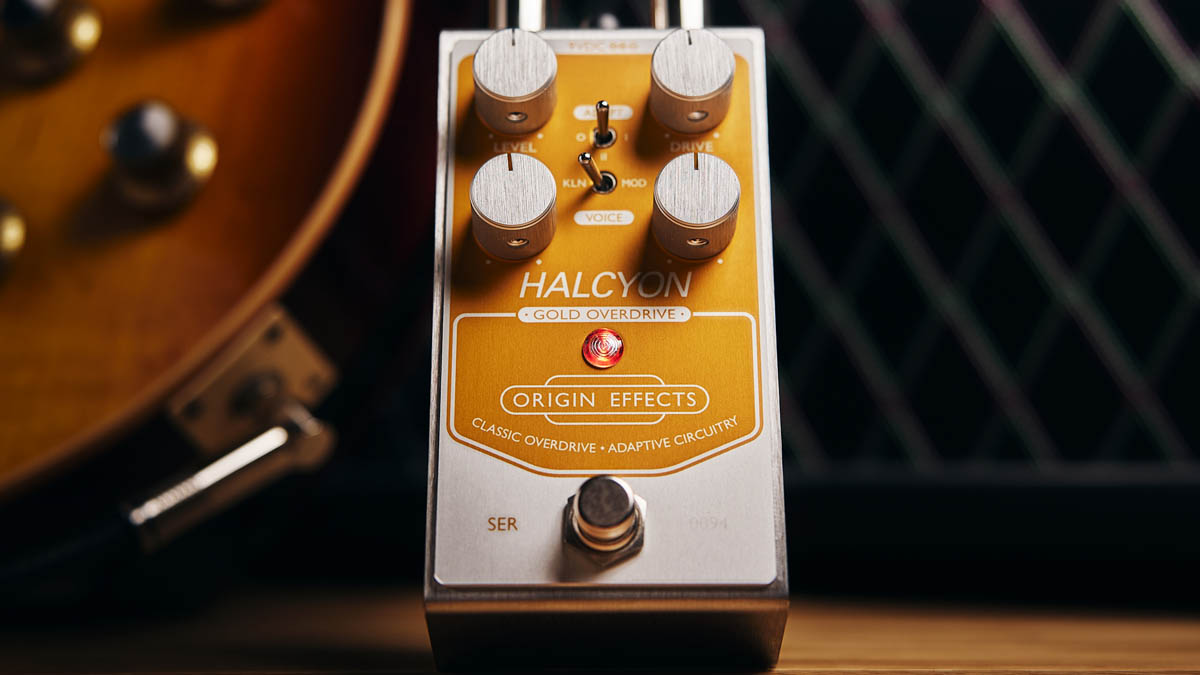
Can you even call yourself a guitar effects pedal company if you haven’t at one time or another taken a swing at the Klon Centaur, designing your own take on one of the most legendary overdrive pedals of all time?
Origin Effects has clearly been wrestling with such existential quandaries, and has duly expanded its Halcyon range with the Gold Overdrive – a pedal inspired by the Klon, but, it says, promises more, with a feature set that expands upon the original.
Origin Effects makes no bones about it. The Halcyon Gold Overdrive is based on the Klon Centaur, the Bill Finnegan designed cult classic that has become a drive pedal subgenre of its own.
Here, the Klon Centaur circuit is the launching pad for a “dynamic and interactive” overdrive that is the perfect mediator between guitar and amp, responding to your picking dynamics and the volume control on your electric guitar.
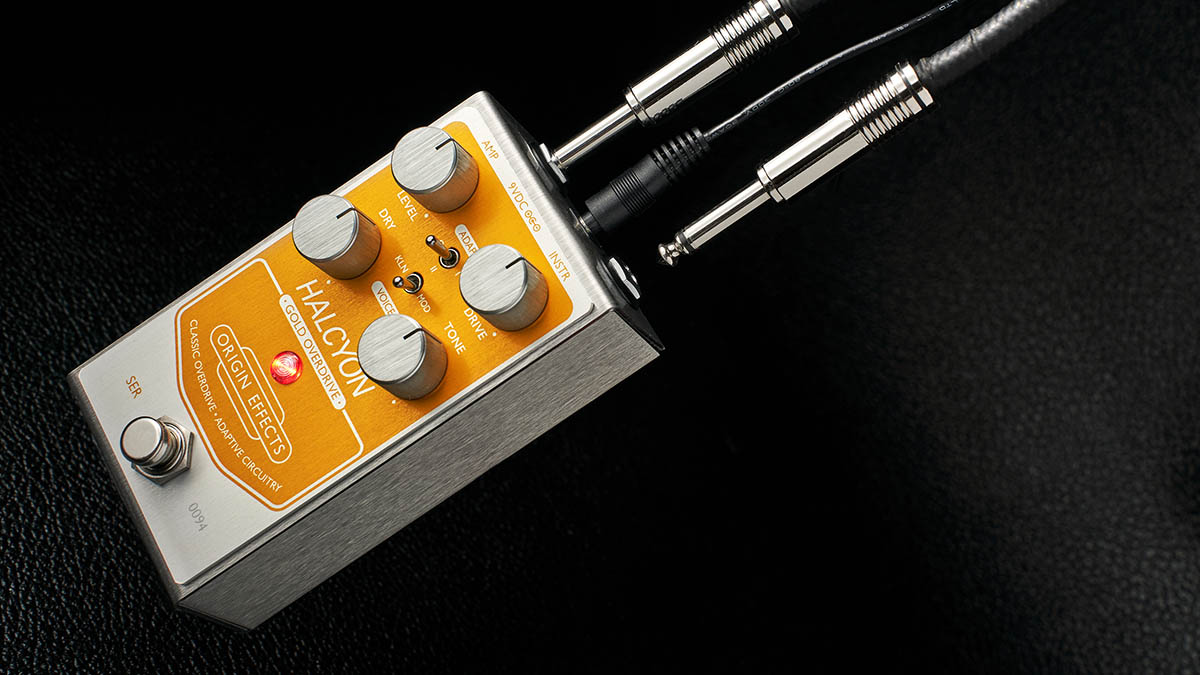
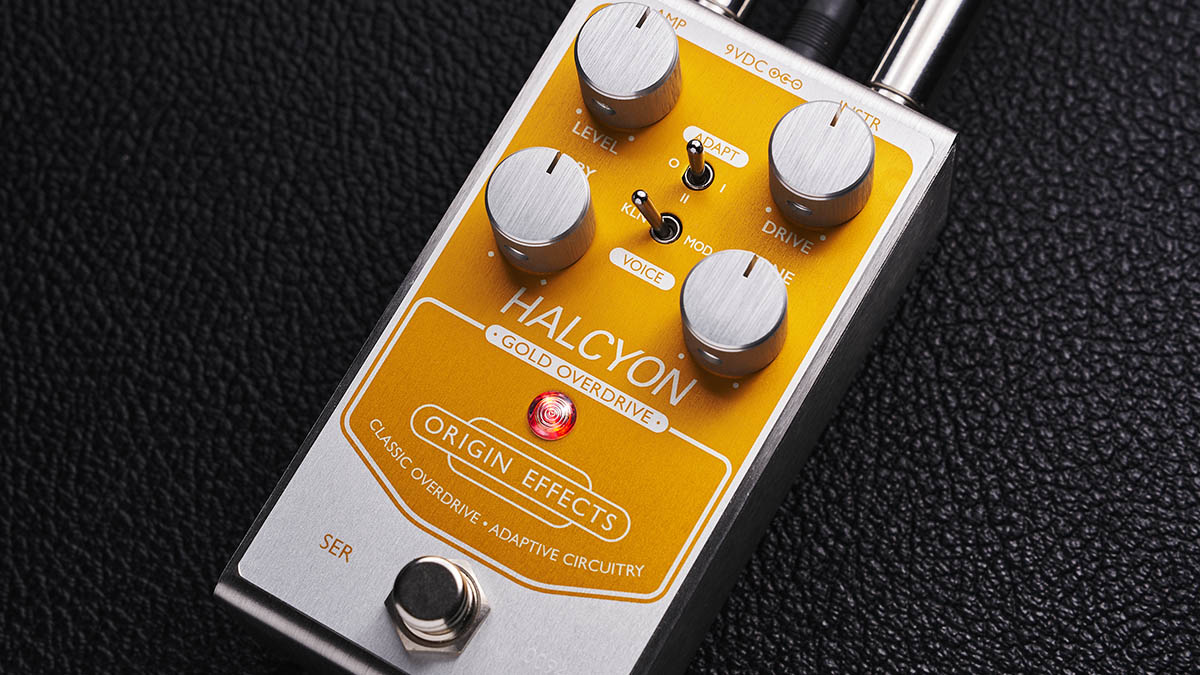
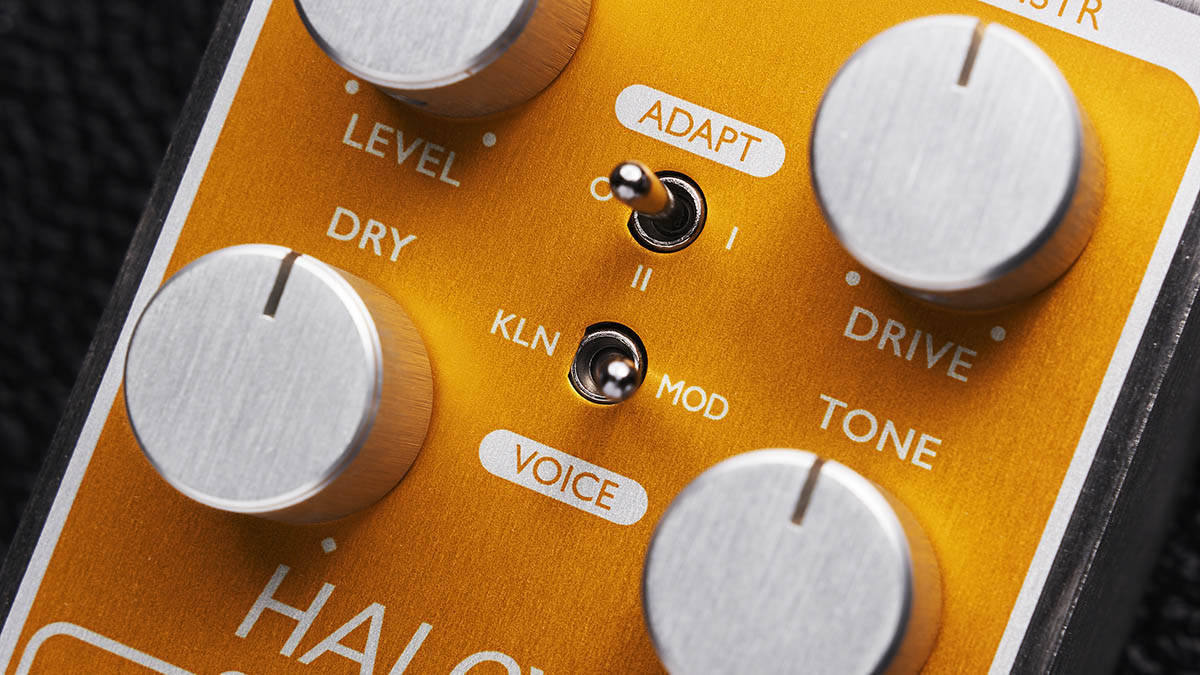
The original Klon was no one-trick pony. It excels as a transparent boost, and for dialing in a pronounced mid-hump that could be your lead guitar’s secret sauce for asserting itself in a mix.
The Halcyon Gold Overdrive can do all that but the Adaptive Circuitry, controllable via the three-position Adapt toggle switch, gives you three different options on how you want the pedal’s mid-hump to behave.
In Position O, it behaves as the original Klon does, boosting the mid-hump as the gain increases. Position II, however, activates the Adaptive Circuitry, allowing you to control that mid-hump by your picking dynamics or by rolling back the volume control on the guitar.
Get the MusicRadar Newsletter
Want all the hottest music and gear news, reviews, deals, features and more, direct to your inbox? Sign up here.
The more you have the Drive knob cranked, the more you will notice the Adaptive Circuitry applying this sort of dynamic brake on the mids, allowing the lows and mids back into your signal. Position I on the Adaptive Circuitry offers an in-between setting, which could be useful if you want to keep that low-end tight.
There is a two-way voice switch selecting between the original KLN setting and the Mod setting, which “has a broader mid hump and a softer, more compressed clipping characteristic” that plays well with single-coil electric guitar pickups, and excels when running the Drive hot while going into a clean guitar amp.
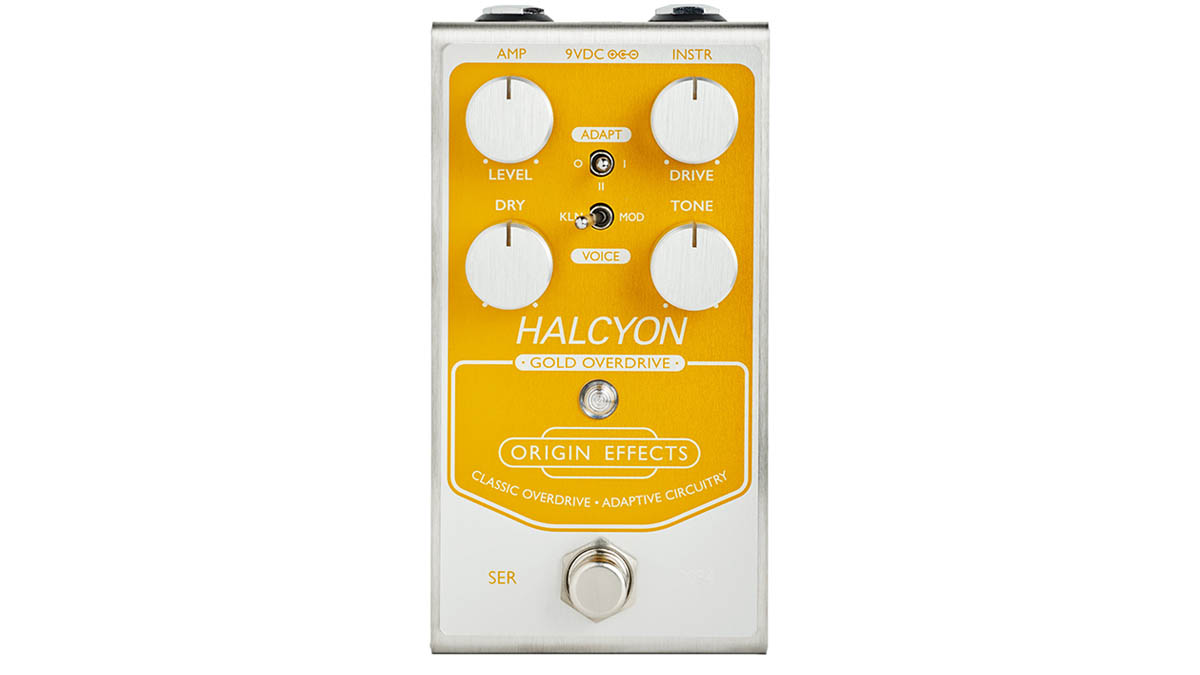
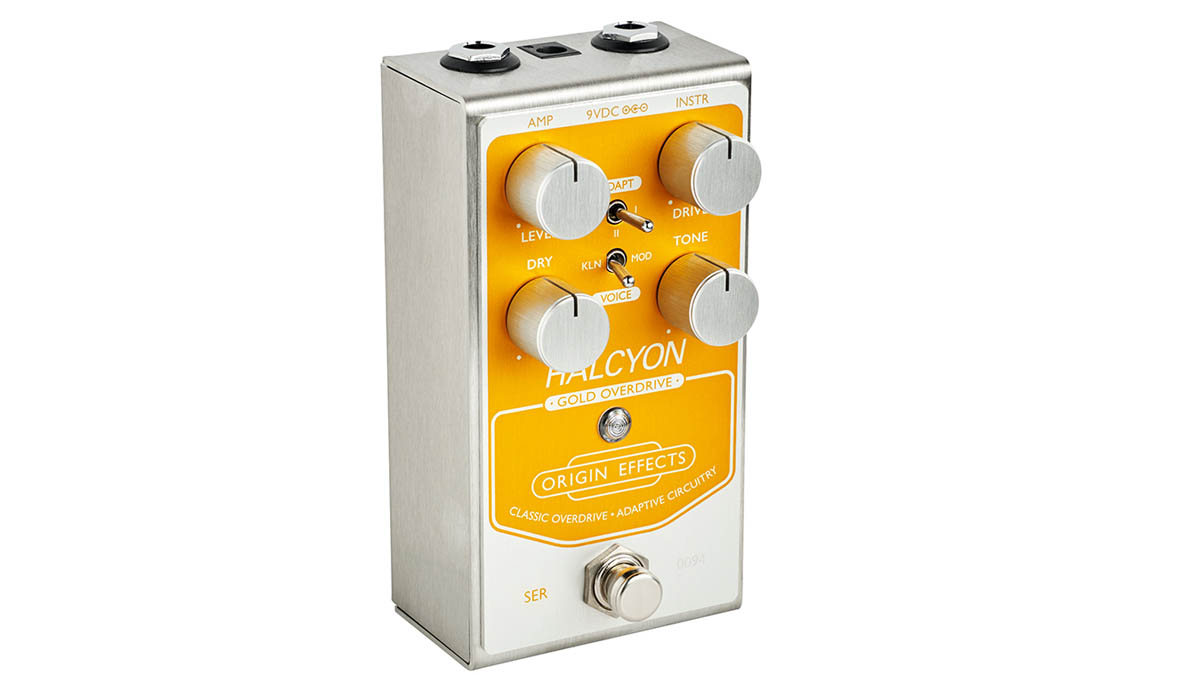
Other controls include Level, for setting the overall output of the pedal, Tone, and Dry, which adjusts the mix between your guitar’s signal and the pedal’s drive tone. You can dial in a bit more body and clarity by turning it clockwise, or counterclockwise for foregrounding the overdriven sounds.
Other features include top-mounted jacks, high-quality buffered bypass, and ultra-high (1 MΩ) input impedance. The Halcyon Gold Overdrive is available now and priced £249. See Origin Effects for more details.
Jonathan Horsley has been writing about guitars and guitar culture since 2005, playing them since 1990, and regularly contributes to MusicRadar, Total Guitar and Guitar World. He uses Jazz III nylon picks, 10s during the week, 9s at the weekend, and shamefully still struggles with rhythm figure one of Van Halen’s Panama.
“A fully playable electro-mechanical synth voice that tracks the pitch of your playing in real time”: Gamechanger Audio unveils the Motor Pedal – a real synth pedal with a “multi-modal gas pedal”
“Instead of labouring over a perfect recreation, we decided to make an expanded counterpart”: Chase Bliss teams up with Mike Piera for Analog Man collab based on the legendary King Of Tone










